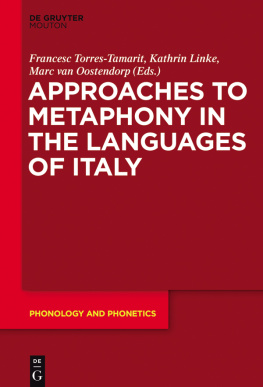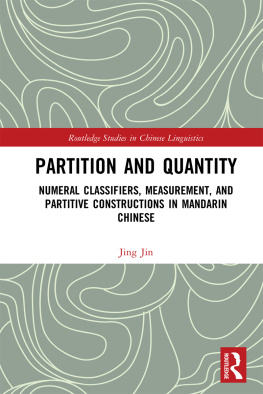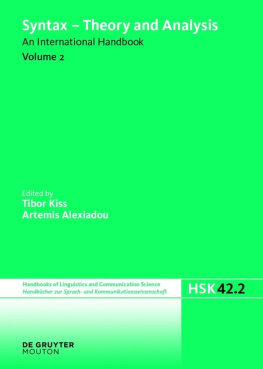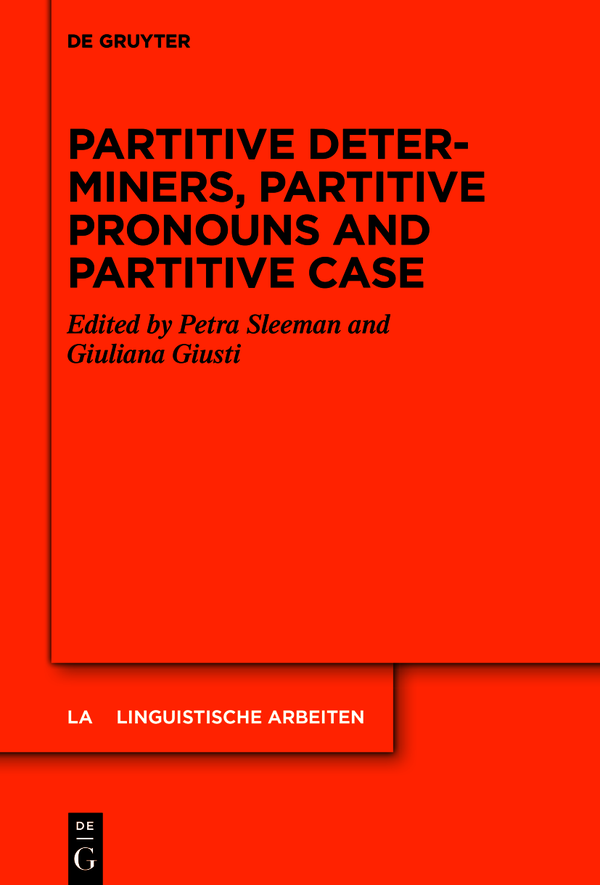Petra Sleeman (editor) - Partitive Determiners, Partitive Pronouns and Partitive Case
Here you can read online Petra Sleeman (editor) - Partitive Determiners, Partitive Pronouns and Partitive Case full text of the book (entire story) in english for free. Download pdf and epub, get meaning, cover and reviews about this ebook. year: 2021, publisher: De Gruyter, genre: Home and family. Description of the work, (preface) as well as reviews are available. Best literature library LitArk.com created for fans of good reading and offers a wide selection of genres:
Romance novel
Science fiction
Adventure
Detective
Science
History
Home and family
Prose
Art
Politics
Computer
Non-fiction
Religion
Business
Children
Humor
Choose a favorite category and find really read worthwhile books. Enjoy immersion in the world of imagination, feel the emotions of the characters or learn something new for yourself, make an fascinating discovery.

- Book:Partitive Determiners, Partitive Pronouns and Partitive Case
- Author:
- Publisher:De Gruyter
- Genre:
- Year:2021
- Rating:4 / 5
- Favourites:Add to favourites
- Your mark:
Partitive Determiners, Partitive Pronouns and Partitive Case: summary, description and annotation
We offer to read an annotation, description, summary or preface (depends on what the author of the book "Partitive Determiners, Partitive Pronouns and Partitive Case" wrote himself). If you haven't found the necessary information about the book — write in the comments, we will try to find it.
Open Access
Although the interest in the concept of partitivity has continuously increased in the last decades and has given rise to considerable advances in research, the fine-grained morpho-syntactic and semantic variation displayed by partitive elements across European languages is far from being well-described, let alone well-understood. There are two main obstacles to this: on the one hand, theoretical linguistics and typological linguistics are fragmented in different methodological approaches that hinder the full sharing of cross-theoretic advances; on the other hand, partitive elements have been analyzed in restricted linguistic environments, which would benefit from a broader perspective. The aim of the PARTE project, from which this volume stems, is precisely to bring together linguists of different theoretical approaches using different methodologies to address this notion in its many facets.
This volume focuses on Partitive Determiners, Partitive Pronouns and Partitive Case in European languages, their emergence and spread in diachrony, their acquisition by L2 speakers, and their syntax and interpretation. The volume is the first to provide such an encompassing insight into the notion of partitivity.
Petra Sleeman (editor): author's other books
Who wrote Partitive Determiners, Partitive Pronouns and Partitive Case? Find out the surname, the name of the author of the book and a list of all author's works by series.







